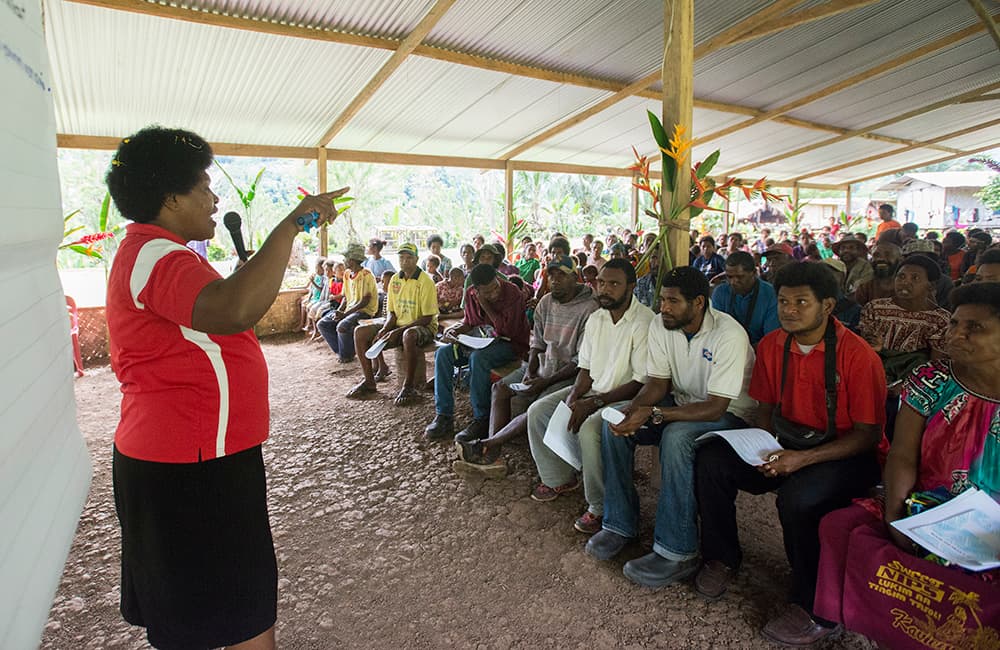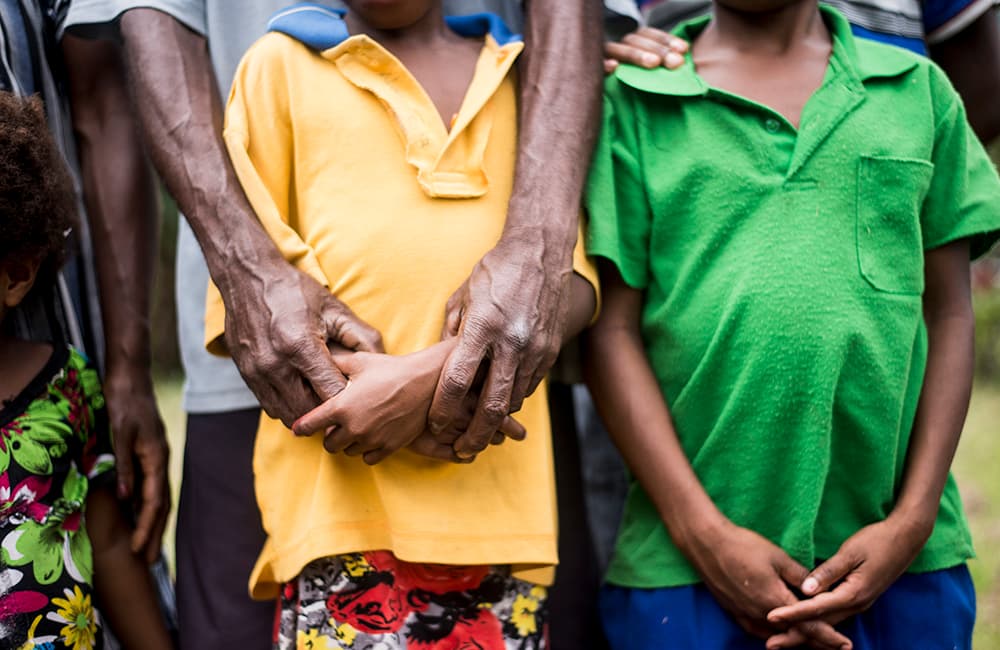No child should have to endure the damaging impacts of violence
Unseen, Unsafe is a new report that reveals the alarming scale of violence being perpetrated against children in the Pacific and Timor-Leste, and the critically low amount of funding being invested to address it.
Produced by Save the Children in collaboration with Child Fund, Plan International and World Vision, the report states that the drivers of violence in the region are complex, entrenched and inter-generational. It outlines a range of factors that contribute to the high levels of abuse, including;
- patriarchal societies with high levels of gender inequality;
- social acceptance of physical punishment against children;
- low status in general of children;
- weak institutional and governance systems;
- and growing poverty and inequality.
The report outlines effective interventions that have positively influenced outcomes in the home, family, community, and broader society. It shows that measurable and long-term impact can be achieved if governments and donors are willing to work with NGOs, churches and community organisations across the region to prioritise and invest in local solutions.
An eye to tomorrow
David Hopoto is Senior Program Coordinator of ‘Safe Children, Safe Communities’ on the island of Bougainville in Papua New Guinea. The program – run by Save the Children – aims to educate communities about how to identify and respond to cases of child abuse, how to communicate with their children about safety and how parents can positively discipline children without resorting to physical violence.
Mr Hopoto believes a key part of the program is helping families understand what exactly constitutes abuse.
“Our team that has been conducting the workshops have told me that some parents, after going through the training, have actually cried because they now realise that what they’ve been doing was actually child abuse. They realise they’ve stopped their children from enjoying their childhood, playing with other kids, learning properly and so on.”
.jpg.aspx)
Programs like Safe Children, Safe Communities in PNG are helping raise awareness about how parents and
community leaders can help protect children from violence.
Changing perspectives
Robert and Darlan have taken part in the ‘Safe Children Safe Communities’ workshops in their remote village in Morobe Province, Papua New Guinea.
Robert admits he has resorted to violence in the past to discipline his children and has acknowledged how this has impacted on their relationship.
“Before, when my wife and I would shout at them they would fear us,” he says. “They knew that we would beat them so they distrusted us and did what they want.
“Now, since the training, we changed our approach and they listen to us. When we talk, there is not fear any more. They agree with us. The communication is back. There’s change, great change.”
Both Robert and Darlan believe the workshops are bringing a positive energy to their little village and hope the message will spread through the region.
“It’s very important to share this knowledge through the community. We want our neighbours to attend this program, so they won’t use a stick to beat their children or shout any more. They’ll learn to communicate through words with their children.”
“If we teach our kids well today, they will teach their children and that behaviour will be inherited from there.”
George, father of three boys and one girl explains how the program has affected him personally.
“I haven’t always treated my children very well. How I approached educating them, advising them - what is wrong and what is right - I have come to realise that I made some big mistakes. So I regret that.”
“The workshop taught me that I can encourage some of the young boys. And I can encourage my children not to make the same mistakes I made. They should not follow what I have done.
“So, I’m very happy with this program. As a leader in this community, I’m very happy. As long as we live in this community we can keep making sure parents are looking after their children, not beating their wives or beating their children.”
The urgent need
Unseen, Unsafe calls for a ‘priority reset’ – one that focuses on the future generation in the Pacific and Timor-Leste. A future free of violence, a future filled with opportunities and a future where children are no longer unseen and unsafe.
It suggests that if we want future generations of children in the Pacific to grow and prosper, then a determined and meaningful investment in their wellbeing and safety is critical. Otherwise, yet another generation will face the ongoing human and economic costs wrought by violence perpetrated against children.
A key recommendation put forward in the report is that key donors, including the Australian government, significantly increase their funding for programming specific to ending violence against children. Programs like ‘Safe Children, Safe Communities’, where the positive outcomes for families are plain to see.
.jpg.aspx)
Every child’s right
David Hopoto is optimistic that over time, and with appropriate investment, positive changes in behaviour within the home can be achieved.
“My biggest hope is that the children grow up in a caring environment and that their needs are being taken care of. That they grow up confident and they know about their rights, and if their rights are not given, then they know who to approach.”
He believes the key is empowerment. And that programs like Safe Children, Safe Communities work to shift the thinking of parents and community leaders and give children an invaluable understanding of their right to a peaceful upbringing.
“What I enjoy most is working with the people and seeing the positive change in people’s lives,” Mr Hopoto says. “I see that providing information to people and people using it to change their life is more important than giving them money or physical things. Being able to use new knowledge is more empowering than having other people do things for them. The empowering aspect of working with communities is what drives me to do the work I do.”
Images: Robert McKechnie/Save the Children